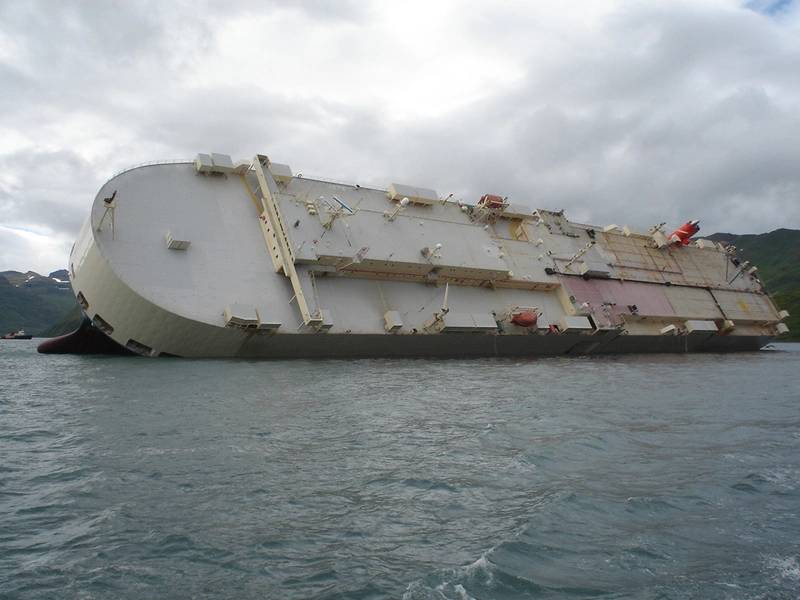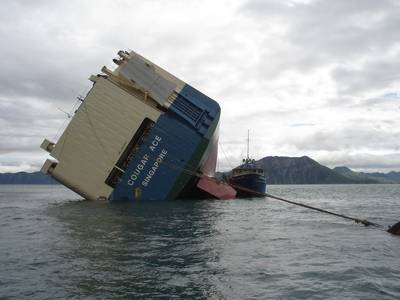Salvage Awards: How to Do the Right Thing and Still Get It Wrong
Tony Siciliano provides a bunch of his friends and I with an invaluable service by sending us daily emails with copies of articles that may be interest to us. This includes an occasional maritime court or regulatory decision. I tend to ignore the court decisions, but a decision with this title piqued my interest:
- Admiralty Court determines salvage remuneration
SD Rebel BV & another -v- Elise Tankschiffahrt KG (VB Rebel) [2025] EWHC 376 (Admty)
The decision provides an interesting insight into the difficulties and flaws of determining salvage awards. Contractually the salvage was a bit unusual and part of the decision relied on whether the salvage was a Lloyds Open Form.
It ended up in an English Court and it was ruled that, for all practical purposes, the salvage was conducted under Lloyds Open Form and, as such, a salvage award was to be made.
The salved values were agreed at GBP 1.8 million for the ship and GBP 0.6 million for the cargo for a total salved value of GBP of 2.4 million.
The salvage was quick and easy. It basically consisted of a grounding, with a tug showing up, attaching a line and pulling the ship off at the first tide.
Once the ship was delivered, the ship owner refused to be involved in a salvage award negotiation and settlement, and this is why it became a court case.
However, the cargo owners did not fight the LOF approach and agreed to settle the matter for a total award of GBP 150,000 and therefore paid a salvage award of 0.6/2.4 times GBP 150,000, resulting in a cargo contribution of GBP 37,500. A negotiated salvage award of 6.35% by cargo interest.
Since the Court ruled it was an LOF, it noted that Article 13 of the Salvage Convention 1989 provides the criteria for fixing a salvage award. The Court considered the criteria in the usual manner. It also noted it would be appropriate for it to be guided by appropriate awards issued under LOF Arbitration, but they found no sufficiently comparable award.
Ultimately the Court made an award determination in the amount of GBP 90,000 (3.75%), substantially lower than the amount agreed on by cargo prior to the litigation at GBP 150,000.
The court noted that as part of the cargo settlement, cargo interests had only paid minimally towards costs and would likely have been willing to strike a quick bargain before the Tug owners’ legal costs became disproportionate and therefore the court only attributed limited weight to this data point.
To me this was a very strange and illogical comment. The court simply ignored a real commercial settlement. It is like going to court to ask for the price of eggs where the court ignores the real-world price of eggs, and argues that because there is a shortage of eggs they can can come up with their own lower price of eggs.
As a person who does not first rely on legal procedures to solve real commercial life problems, I have found that law and reliance on precedent are no guarantee for an equitable, reasonable or logical outcome.
This becomes even more complicated with salvage awards, because they exist in a strange straddle of commerce and law, and on a quantitative level can be compared to equitable criminal punishment, which operates in a straddle of society and law.
Punishments need to punish the criminal and also need to exist as a deterrent to the rest of society. This quickly becomes complicated and should rely on real data and rarely does. In the United States capital punishment is incredibly uneconomical and has been proven to be a poor deterrent, but persists in a patently false belief that capital punishment is a more effective deterrent than life imprisonment.
Society is fuzzy and there is often a desire to ignore real data. However, commerce is much less fuzzy because it relies on the exchange of money instead of the exchange of emotions.
Therefore, commerce can produce real data, and in this case, commerce supplied real data. The salvor and cargo negotiated an award that in the end can only have been equitable based on the resolution of an issue between knowledgeable parties without interference of the law (but with an understanding of the laws driving commerce).
 All photos courtesy Rik van Hemmen
All photos courtesy Rik van Hemmen
They arrived at an award that was 6.35% of the salved goods. This was a clear commercial transaction and a true data point. Instead of relying on that data point, the Court decided to rely on archaic legal standards and guidelines without commercial data to determine their own reward and determined that the award should be 3.75% of the salved goods.
Admittedly the commercial award was only one data point, but the legal award had no actual data points at all! From a technical point of view, the court determined salvage award is nothing more than the result of incestuous navel staring. Moreover, the commercial award relied on the exact circumstances of the salvage, while the legal award can do no more than use subjective judgement of award guidelines.
When considered carefully, one can only conclude that the use of the salvage award guidelines does not provide a realistic commercial value.
But it gets worse. Remember, salvage law does not only regulate the equitable reward for salving a specific property at sea, they are also supposed to encourage the entire maritime community to invest in salvage resources. As such, the law should be slightly more generous than a single exchange award and, similar to criminal punishment, it should provide an additional inducement “pour encourager les autres.” As such, it should be slightly higher than the commercial data point. Based on this, the award should have been in excess of the commercial data point, at least 7% and maybe more.
In the “encourager les autres” vein, in this particular decision the court could have made the award even higher to simply point out that stiffing a salvor and driving the case into a court is not beneficial to commerce. This would have also been equitable to the cargo interest who came to agreement with the salvor without the cost and burden of the court. In this case, while both cargo and the court agreed it was LOF, by being equitable, cargo ended up paying more than the party that lost in court!
To an engineer this rather minor case indicates that, based on commercial data and commercial efficiency, it is time for the salvage courts to truly think strategically and to update their award standard such that the awards are not lower than a simple in the field LOF award agreement. If we do not provide realistic and properly incentivizing salvage awards, nobody will show up when the trouble starts. This court decision certainly would not encourage a salvor.
For each column I write, MREN has agreed to make a small donation to an organization of my choice. For this column I choose the National Marine Sanctuary Foundation protecting our marine sanctuaries requires robust salvage resources.













